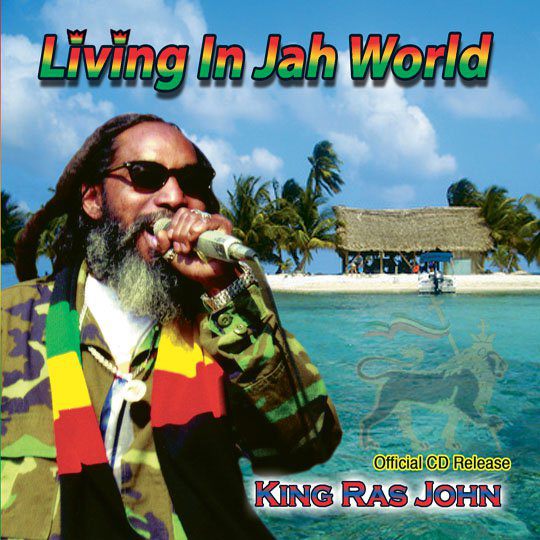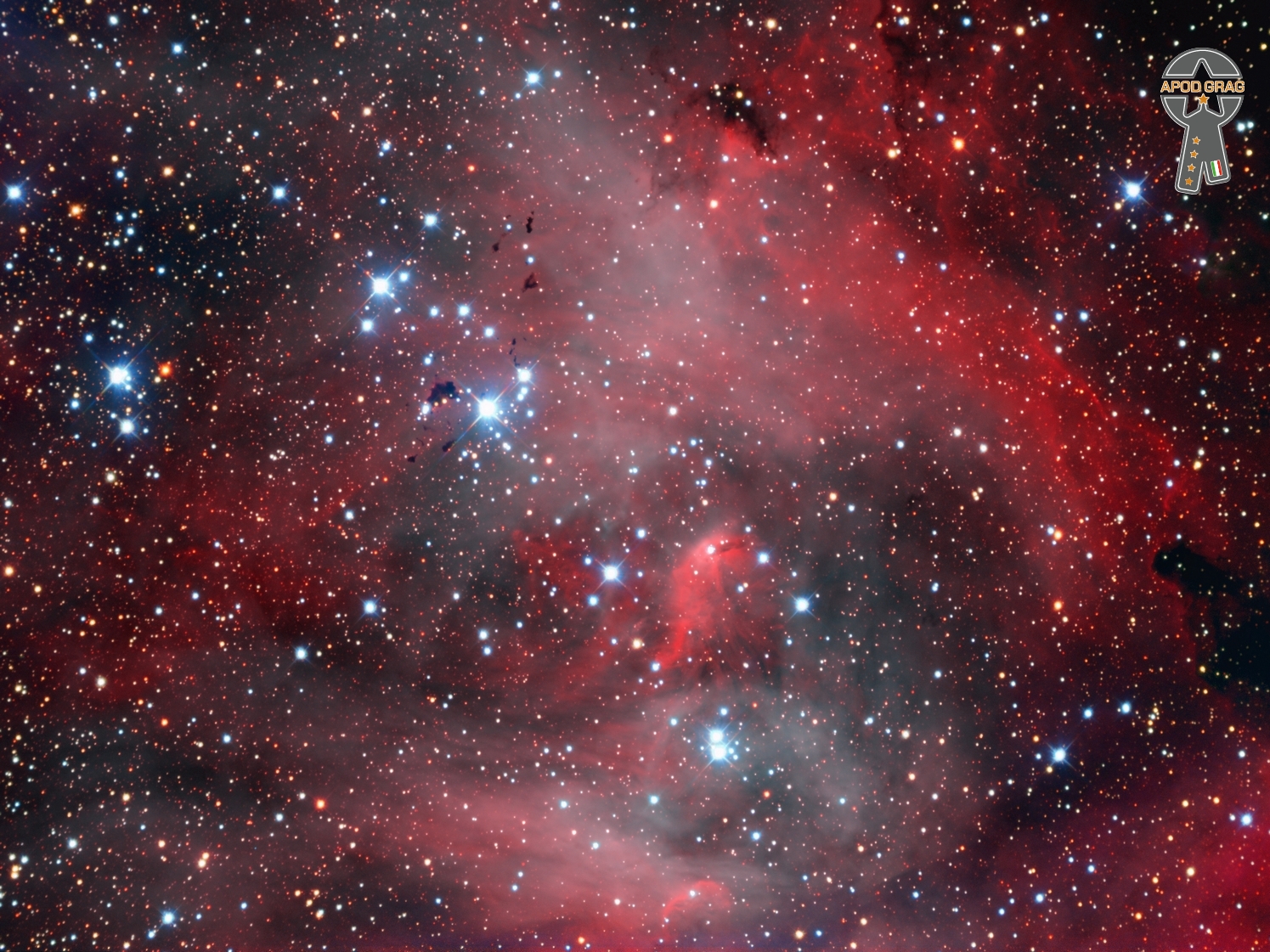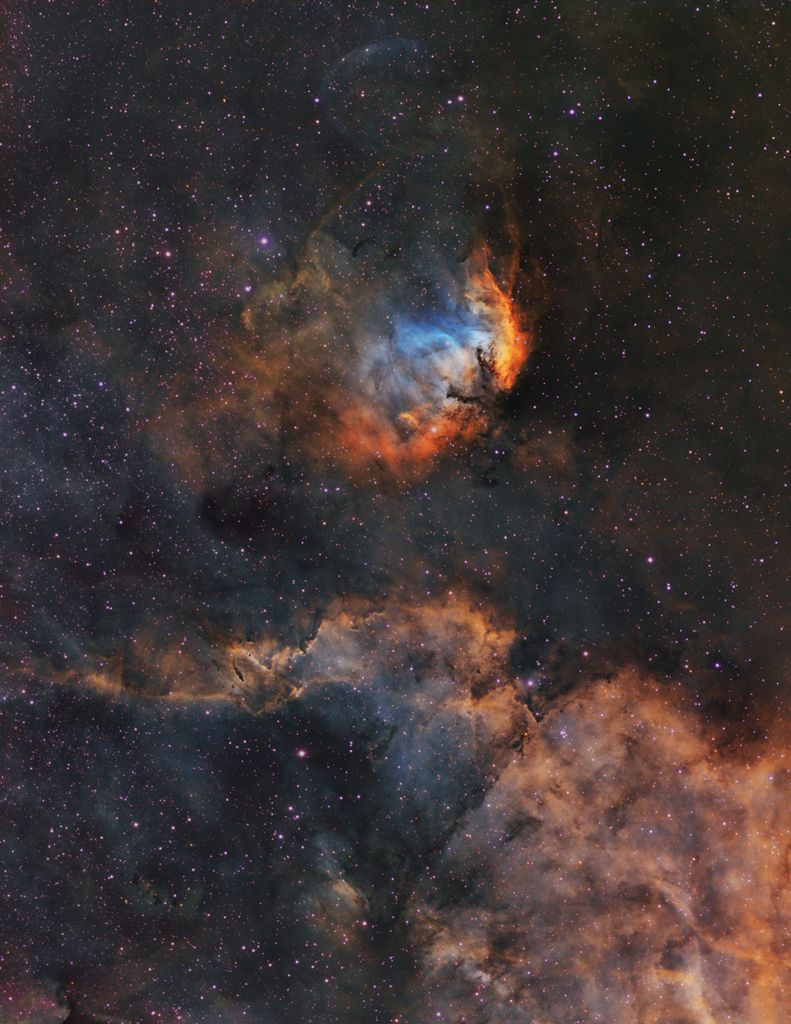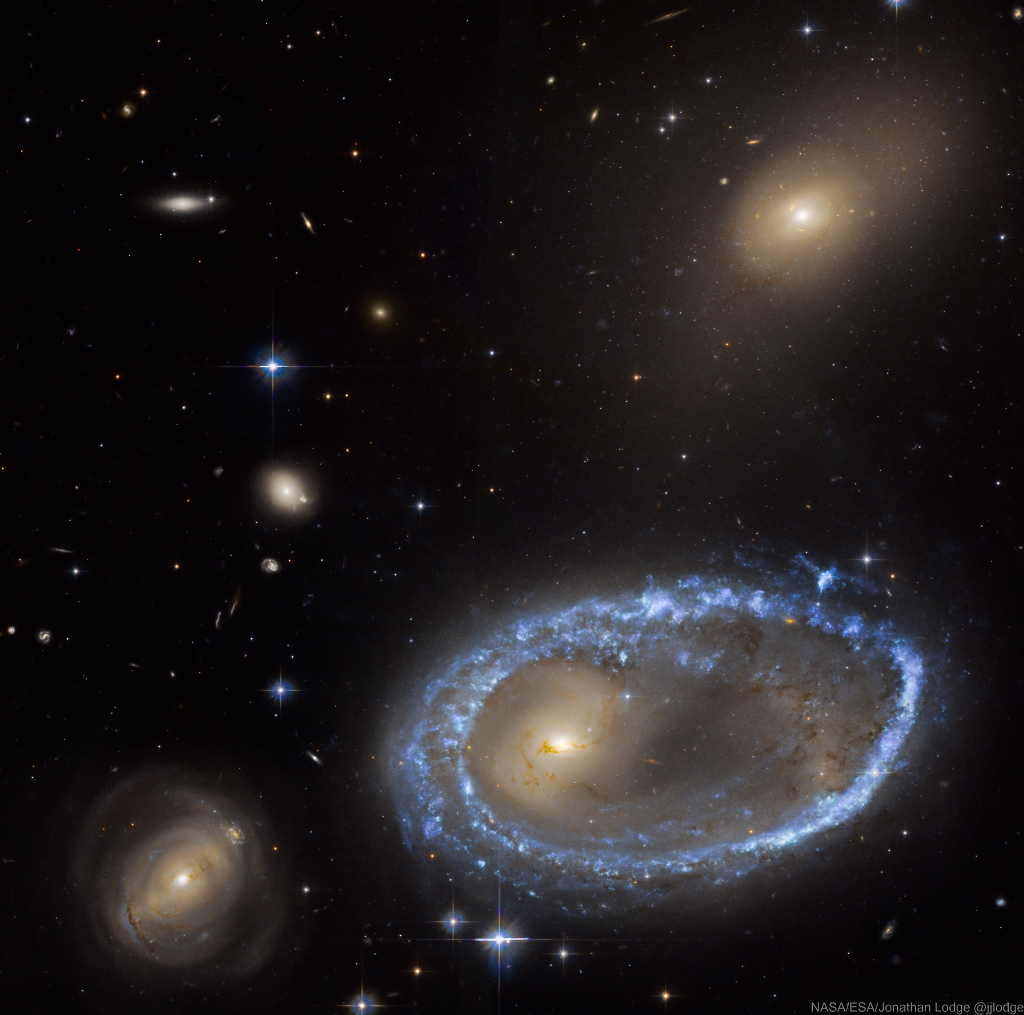Blog
Final engagement with King Ras John at Harbor Bar Reggae Fest Friday July 30th 6-10pm across from Red Wing, MN

IC 2944, also known as the Running Chicken Nebula or the λ Centauri Nebula, is an open cluster with an associated emission nebula found in the constellation Centaurus, near the star λ Centauri. It features Bok globules, which are frequently a site of active star formation. However, no evidence for star formation has been found in any of the globules in IC 2944.

David William Sanborn (born July 30, 1945) is an American alto saxophonist. Though Sanborn has worked in many genres, his solo recordings typically blend jazz with instrumental pop and R&B. He released his first solo album Taking Off in 1975, but has been playing the saxophone since before he was in high school.
One of the most commercially successful American saxophonists to earn prominence since the 1980s, Sanborn is described by critic Scott Yannow as “the most influential saxophonist on pop, R&B, and crossover players of the past 20 years.” He is often identified with radio-friendly smooth jazz, but he has expressed a disinclination for the genre and his association with it.
Sanborn was born in Tampa, Florida, and grew up in Kirkwood, Missouri. He suffered from polio for eight years in his youth. He began playing saxophone on a physician’s advice to strengthen his weakened chest muscles and improve his breathing. Alto saxophonist Hank Crawford, at the time a member of Ray Charles‘s band, was an early and lasting influence on Sanborn.
Sanborn attended college at Northwestern University and studied music. But he transferred to the University of Iowa where he played and studied with saxophonist J.R. Monterose.
Sanborn performed with blues musicians Albert King and Little Milton at the age of 14. He continued playing blues when he joined Paul Butterfield blues band in 1967. Sanborn recorded on four Butterfield albums as a horn section member and soloist from 1967 to 1971. In the early morning of Monday, August 18, 1969 Sanborn appeared as a member of the band at the WoodstockMusic Festival at Bethel, NY.
more...
George “Buddy” Guy (born July 30, 1936) is an American blues guitarist and singer. He is an exponent of Chicago blues and has influenced guitarists including Eric Clapton, Jimi Hendrix, Jimmy Page, Keith Richards, Stevie Ray Vaughan, Jeff Beck, Gary Clark Jr. and John Mayer. In the 1960s, Guy played with Muddy Waters as a house guitarist at Chess Records and began a musical partnership with the harmonica player Junior Wells.
Guy was ranked 23rd in Rolling Stone magazine’s “100 Greatest Guitarists of All Time“. His song “Stone Crazy” was ranked 78th in the Rolling Stone list of the “100 Greatest Guitar Songs of All Time”. Clapton once described him as “the best guitar player alive”. In 1999, Guy wrote the book Damn Right I’ve Got the Blues, with Donald Wilcock. His autobiography, When I Left Home: My Story, was published in 2012.Guy was born and raised in Lettsworth, Louisiana. His parents were sharecroppers and as a child, Guy would pick cotton for $2.50 per 100 pounds. He began learning to play the guitar using a two-string diddley bow he made. Later he was given a Harmony acoustic guitar which, decades later in Guy’s lengthy career, was donated to the Rock and Roll Hall of Fame.
more...Vernel Anthony Fournier (July 30, 1928 – November 4, 2000) and, from 1975, known as Amir Rushdan, was an American jazz drummer probably best known for his work with Ahmad Jamal from 1956 to 1962.
Fournier was born in New Orleans, Louisiana, into a Creole family. He left college to join a big band led by King Kolax. After Kolax downsized to a quintet, Fournier moved to Chicago in 1948, where he played with such musicians as Buster Bennett, Paul Bascomb and Teddy Wilson. As house drummer at the Bee Hive club on Chicago’s South Side in 1953-55, he accompanied many visiting soloists, including Lester Young, Ben Webster, Sonny Stitt, J.J. Johnson, Earl Washington and Stan Getz.
From 1953 to 1956, Fournier also worked many recording sessions with Al Smith, Red Holloway, Lefty Bates, and others. He joined Ahmad Jamal’s trio in 1957, along with bass player Israel Crosby, and remained with the group until 1962, appearing on a series of recordings for the Chess label. The best known of these, At the Pershing: But Not for Me (1958), became one of the best selling jazz records of all time, remaining on the Billboard jazz charts for over two years.
more...Fandangos is a tree with roots that reach across Andalucía and with branches that keep growing. The form emerged as a popular song and dance in the late 18th Century in the port city of Cádiz from songs and dances brought to Spain from the Americas. The Fandango of today is an aflamencada gathering of those disparate roots. Fandango Andaluz is a broad term that refers to all the forms of Fandangos found across southern Spain. Within this broad category, there are essentially two types of Fandangos, each defined by its source and underlying rhythm
This tall telescopic field of view looks out along the plane of our Milky Way Galaxy toward the nebula rich constellation Cygnus the Swan. Popularly called the Tulip Nebula, the brightest glowing cloud of interstellar gas and dust above center is also found in the 1959 catalog by astronomer Stewart Sharpless as Sh2-101. Nearly 70 light-years across the complex and beautiful Tulip Nebula blossoms about 8,000 light-years away, shown in a Hubble palette image that maps the glow of the nebula’s sulfur, hydrogen, and oxygen ions into red, green, and blue colors. Ultraviolet radiation from young energetic stars at the edge of the Cygnus OB3 association, including O star HDE 227018, ionizes the atoms and powers the emission from the Tulip Nebula. Also in the field of view is microquasar Cygnus X-1, one of the strongest X-ray sources in planet Earth’s sky. Driven by powerful jets from a black hole accretion disk, its fainter bluish curved shock front is only just visible though, directly above the cosmic Tulip’s petals near the top of the frame.

7-29-1939
A talented bop-based pianist and an extremely appealing and sensuous vocalist, Ellyn Rucker is definitely a fixture within the Denver region. Although she began playing piano when she was eight, found out jazz at 13, and analyzed traditional piano at Drake University or college, she didn’t decide to turn into a full-time musician until 1979. Rucker offers toured Europe many times (with and without Spike Robinson), documented many albums for Capri, includes a full-length video on Amusement Jazz, and performed at many celebrations. Probably if Ellyn Rucker acquired adopted music full-time twenty years previously or resided in a more substantial region than Denver she’d be a larger name. Nevertheless, her talent is definitely in the main leagues and her recordings are quite interesting and powerful.
more...Charles Henry Christian (July 29, 1916 – March 2, 1942) was an American swing and jazz guitarist.
Christian was an important early performer on the electric guitar and a key figure in the development of bebop and cool jazz. He gained national exposure as a member of the Benny Goodman Sextet and Orchestra from August 1939 to June 1941. His single-string technique, combined with amplification, helped bring the guitar out of the rhythm section and into the forefront as a solo instrument. For this, he is often credited with leading to the development of the lead guitar role in musical ensembles and bands. John Hammond and George T. Simon called Christian the best improvisational talent of the swing era. In the liner notes to the album Solo Flight: The Genius of Charlie Christian (Columbia, 1972), Gene Lees wrote that “Many critics and musicians consider that Christian was one of the founding fathers of bebop, or if not that, at least a precursor to it.”
Christian’s influence reached beyond jazz and swing. In 1990, he was inducted into the Rock and Roll Hall of Fame in the category Early Influence.
In 2006 Oklahoma City renamed a street in its Bricktown entertainment district “Charlie Christian Avenue” (Christian was raised in Oklahoma City and was one of many musicians who jammed along the city’s “Deep Deuce” section on N.E. Second Street).
Christian was born in Bonham, Texas. His family moved to Oklahoma City, Oklahoma, when he was a small child. His parents were musicians. He had two brothers, Edward, born in 1906, and Clarence, born in 1911. All three sons were taught music by their father, Clarence Henry Christian. Clarence Henry was struck blind by fever, and in order to support the family he and the boys worked as buskers, on what the Christians called “busts.” He would have them lead him into the better neighborhoods, where they would perform for cash or goods. When Charles was old enough to go along, he first entertained by dancing. Later he learned to play the guitar, inheriting his father’s instruments upon his death when Charles was 12.
In the late 1930s Christian contracted tuberculosis, and in early 1940 he was hospitalized for a short period in which the Goodman group was on hiatus because of Goodman’s back trouble. Goodman was hospitalized in the summer of 1940 after a brief stay at Santa Catalina Island, California, where the band stayed when they were on the West Coast.
After a visit to the hospital that same month by the tap dancer and drummer Marion Joseph “Taps” Miller, Christian declined in health. He died March 2, 1942, at the age of 25. He was buried in an unmarked grave in Bonham, Texas.
more...Donald Matthew Redman (July 29, 1900 – November 30, 1964) was an American jazz musician, arranger, bandleader, and composer. Redman was born in Piedmont, Mineral County, West Virginia. His father was a music teacher, his mother was a singer. Don began playing the trumpet at the age of three, joined his first band at the age of six and by the age of 12 was proficient on all wind instruments ranging from trumpet to oboe as well as piano. He studied at Storer College in Harper’s Ferry and at the Boston Conservatory, then joined Billy Page’s Broadway Syncopaters in New York City. He was the uncle of saxophonist Dewey Redman, and thus great-uncle of saxophonist Joshua Redman and trumpeter Carlos Redman.
In 1923, Redman joined the Fletcher Henderson orchestra, mostly playing clarinet and saxophones.
https://www.youtube.com/watch?v=aO-l1kJnKyo
more...Merengue Star Johnny Ventura Dies at 81
Dominican vocalist, bandleader, lawyer and former mayor of Santo Domingo, Juan de Dios Ventura Soriano, better known as Johnny Ventura, died on July 28, 2021. The Latin Recording Academy released a statement about Johnny Ventura. “With a career that spanned more than six decades, the Dominican singer and composer, dubbed El Caballo Negro, established himself as one of the most popular merengue and salsa artists of the last century,” said Gabriel Abaroa, Jr., President/CEO of The Latin Recording Academy. “He recorded over 100 albums which included hits like “Patacón Pisao,” “Pitaste,” “El Elevador,” “La Agarradera,” “Capullo y Sorrullo” and “El Tabaco.”
Ventura also had a storied political career in his native country where he served as mayor of Santo Domingo. He was a Latin GRAMMY winner who contributed to The Latin Recording Academy for many years as part of its Board of Trustees, and secretary of the Executive Committee. He was presented with the Lifetime Achievement Award in 2006.
Second RRW at VA Adult Day Center Memory Care exploring the healing qualities of World Rhythms. Wednesday 7-28-21 10-noon

The rim of the large blue galaxy at the right is an immense ring-like structure 150,000 light years in diameter composed of newly formed, extremely bright, massive stars. AM 0644-741 is known as a ring galaxy and was caused by an immense galaxy collision. When galaxies collide, they pass through each other and their individual stars rarely come into contact. The large galaxy’s ring-like shape is the result of the gravitational disruption caused by a small intruder galaxy passing through it. When this happens, interstellar gas and dust become compressed, causing a wave of star formation to move out from the impact point like a ripple across the surface of a pond. Other galaxies in the field of view are background galaxies, not interacting with AM 0644-741. Foreground spiky stars are within our own Milky Way. But the smaller intruder galaxy is caught above and right, near the top of the frame taken by the Hubble Space Telescope. Ring galaxy AM 0644-741 lies about 300 million light years away toward the southern constellation Volans.

Delfeayo Marsalis (/ˈdɛl fiː oʊ/; born July 28, 1965) is an American jazz trombonist, record producer and educator.
Marsalis was born in New Orleans, the son of Dolores (née Ferdinand) and Ellis Louis Marsalis, Jr., a pianist and music professor. He is also the grandson of Ellis Marsalis, Sr., and the brother of Wynton Marsalis (trumpeter), Branford Marsalis (saxophonist), and Jason Marsalis (drummer). Delfeayo also has two brothers who are not musicians: Ellis Marsalis III (b. 1964) is a poet, photographer and computer networking specialist based in Baltimore, and Mboya Kenyatta (b. 1970) is autistic and was the primary inspiration for Delfeayo’s founding of the New Orleans-based Uptown Music Theatre. Formed in 2000, UMT has trained over 300 youth and staged eight original musicals, all of which are based upon the mission of “community unity”.
more...Michael Bernard Bloomfield (July 28, 1943 – February 15, 1981) was an American guitarist and composer, born in Chicago, Illinois, who became one of the first popular music superstars of the 1960s to earn his reputation almost entirely on his instrumental prowess, as he rarely sang before 1969. Respected for his guitar playing, Bloomfield knew and played with many of Chicago’s blues musicians before achieving his own fame and was instrumental in popularizing blues music in the mid-1960s. In 1965, he played on Bob Dylan’s Highway 61 Revisited, including the single “Like a Rolling Stone“, and performed with Dylan at that year’s Newport Folk Festival.
Bloomfield was ranked No. 22 on Rolling Stone‘s list of “100 Greatest Guitarists of All Time” in 2003 and No. 42 by the same magazine in 2011.[3]He was inducted into the Blues Hall of Fame in 2012 and, as a member of the Paul Butterfield Blues Band, was inducted into the Rock and Roll Hall of Fame in 2015.
more...David “Junior” Kimbrough (July 28, 1930 – January 17, 1998) was an American blues musician. His best-known works are “Keep Your Hands off Her” and “All Night Long”.
Kimbrough was born in Hudsonville, Mississippi, and lived in the north Mississippi hill country near Holly Springs. His father, a barber, played the guitar, and Junior picked his guitar as a child. He was apparently influenced by the guitarists Lightnin’ Hopkins, Mississippi Fred McDowell and Eli Green.
In the late 1950s Kimbrough began playing the guitar in his own style, using mid-tempo rhythms and a steady drone played with his thumb on the bass strings. This style would later be cited as a prime example of hill country blues. His music is characterized by the tricky syncopation between his droning bass strings and his midrange melodies. His soloing style has been described as modal and features languorous runs in the middle and upper registers. The result was described by music critic Robert Palmer as “hypnotic”.
more...Charles Reed Biddle, CM (July 28, 1926 – February 5, 2003) was an American-Canadian jazz bassist. He lived most of his life in Montreal, organizing and performing in jazz music events.
Biddle was born and grew up in West Philadelphia. He joined the United States Army on January 26, 1945 and served in China, India and Burma during World War II. After the war, he studied music at Temple University in Philadelphia, where he started playing bass.
In 1948, Biddle arrived in Montreal while touring with Vernon Isaac’s Three Jacks and a Jill. Biddle was impressed by the fact that in Canada, particularly Quebec, black jazz musicians often played alongside white jazz musicians as friends and bandmates. He decided to settle down in Montreal, and fell in love with a French-Canadian woman, Constance. The two eventually married and raised three daughters – Sonya, Stephanie and Tracy – and a son, Charles Biddle Jr.
more...More Posts
- Gerry Mulligan Day
- Randy Weston Day
- Charlie Rouse Day
- Big Walter Horton Day
- World Fusion with Gao Hong & Issam Rafea
- Daily Roots with Evo Wiser
- Music for the Pandemic
- The Cosmos with NGC 4651
- Stan Levey Day
- Stanley Turrentine Day
- Billy Bland Day
- World Music with Brian Ó hEadhra
- Daily Roots with Tarrus Riley
- The Cosmos with the Manicouagan Crater
- Hugh Masekela Day
- Muddy Waters Day
- Cecil Gant Day
- World Music with Myrkur
- Daily Roots with Prince Far I
- Alpha Ousmane “Hama” Sankaré Memorial